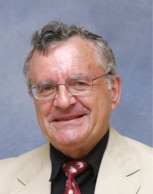Awe – An Emotion That Heals
By Shlomo Maital

Some emotions bring problems – anger, envy, spite. And some emotions solve problems — love, empathy, compassion.
What about ….awe?
Awe? What in the world is that?
Psychologist Dacher Keltner, U. California Berkeley, is the author of a new book (Awe: The New Science of Everyday Wonder and How It Can Transform Your Life. Penguin 2023) that explains how and why. Interviewed on Shankar Vedante’s Hidden Brain podcast, Keltner defines awe as “the emotion that we experience when we encounter something amazing, huge, beyond ourselves, stirring, something we do not fully understand or grasp and that fills us with wonder”.
Awe is therapeutic. In two lovely social psychology experiments, subjects were shown an awesome nature view overlooking Yosemite’s El Capitan – and asked to draw themselves. The size of the image was much smaller than the images drawn by a control group. Why? When experiencing awe, we step outside of our own selves, our own egos, to see beauty and wonder – and that is healing. A similar experiment did the same by showing people the Tyrannosaurus Rex model, life size, at Berkeley’s Paleontology Museum. That too created awe – and a similar downsizing of ego. Military veterans suffering from PTSD have been greatly helped by experiencing awe.
In an age when increasing numbers of people look inward, focus on themselves, their own needs and problems, the emotion of awe places each of us in the perspective of a wide world of humanity – full of beauty and wonder. It is not only El Capitan or the sunrise that inspire awe. So does ‘moral beauty’, says Keltner. Seeing someone do an act of kindness and compassion can also be awesome.
I experienced this yesterday, while watching TV news (nearly always, horrendously awful). A segment showed loving parents caring for a little girl suffering from RETT syndrome, a truly awful genetic disease. * The little girl smiles as her parents exercise her in a therapeutic pool they had built specially for her.
When you see that – how can you possibly drown in your own trivial issues?
Three cheers for awe. Let’s go out and find more of it.
* Rett syndrome is a neurodevelopmental disorder characterized by typical early growth and development followed by a slowing of development, loss of functional use of the hands, distinctive hand movements, slowed brain and head growth, problems with walking, seizures, and intellectual disability


1 comment
Comments feed for this article
March 17, 2023 at 4:20 pm
Mg
I hope more scientists will research awe and test it as a connection to transforming our mental health. I believe many of us are suffering from nature deficit and by default, awe deficit.